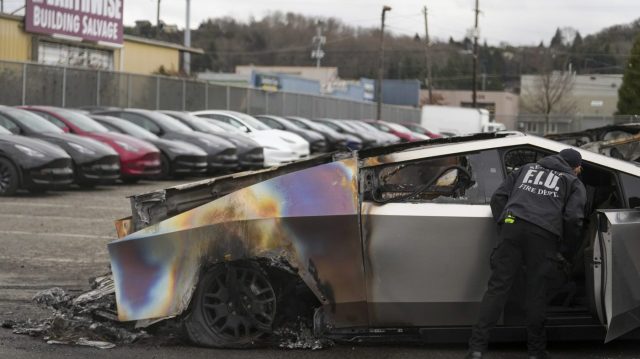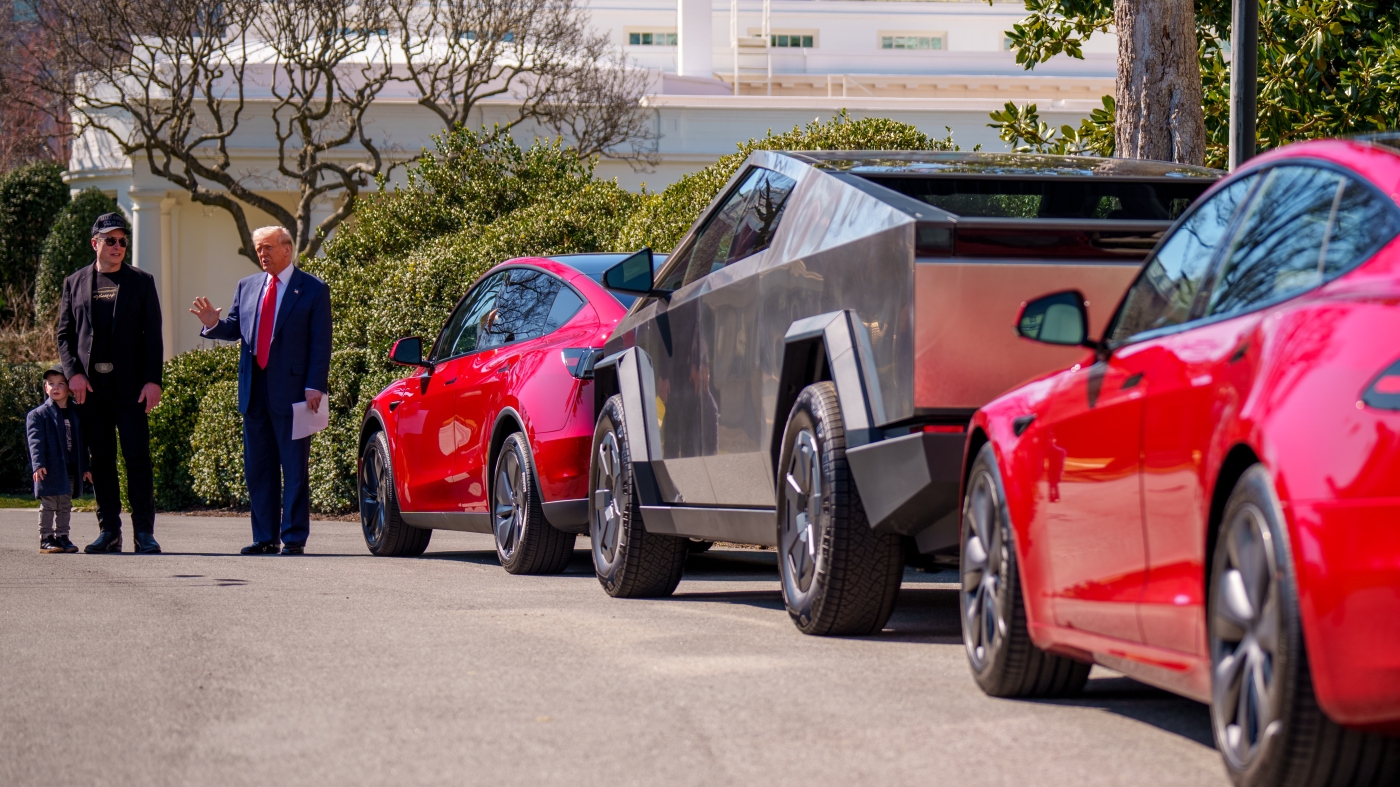Electric Rage: When Political Tensions Ignite Tesla's Automotive Battlefield
Politics
2025-03-27 11:30:00Content

When political activism crosses the line from legitimate protest to senseless destruction, we've entered dangerous territory. The recent trend of targeting Tesla vehicles as a form of personal vendetta against Elon Musk represents a troubling escalation of misguided radical behavior.
Burning or vandalizing cars owned by everyday people who simply chose a particular brand is not a meaningful form of political expression. It's an irrational and destructive act that does nothing to advance any legitimate argument or create positive social change. Instead, such actions only serve to alienate potential allies and demonstrate a profound lack of respect for personal property and individual choice.
True activism involves constructive dialogue, peaceful demonstration, and working to create meaningful systemic change. Torching expensive vehicles because of personal disagreements with a company's founder is nothing more than a childish tantrum that undermines any serious attempt at social discourse.
The moment we normalize such destructive behavior, we risk sliding into a culture of mob rule where emotional reactions trump rational discussion. It's a dangerous path that threatens the very foundations of civil society and reasoned debate.
The Dangerous Escalation of Protest: When Activism Crosses the Line
In an era of heightened social tensions and polarized public discourse, the boundaries between legitimate protest and destructive vandalism have become increasingly blurred. The recent trend of radical actions targeting specific individuals or corporations raises critical questions about the nature of civil discourse and the ethical limits of social activism.Unraveling the Thin Line Between Protest and Destruction
The Anatomy of Modern Activism
The landscape of social protest has dramatically transformed in the digital age, where passionate individuals can quickly mobilize and escalate their grievances beyond traditional forms of peaceful demonstration. What begins as a legitimate expression of discontent can rapidly devolve into targeted harassment and property destruction. This phenomenon reveals a troubling psychological mechanism where personal frustrations are channeled through increasingly extreme actions. The psychological underpinnings of such behavior are complex, rooted in a sense of powerlessness and a misguided belief that radical actions can effect meaningful change. Activists who resort to destructive tactics often fail to recognize that their methods ultimately undermine their own credibility and alienate potential supporters.Technology and Personal Targeting: A Dangerous Intersection
The rise of social media and instantaneous communication has created unprecedented opportunities for individuals to express grievances against public figures and corporations. However, this connectivity has also facilitated a dangerous trend of personalizing political disagreements, transforming legitimate critique into potentially criminal behavior. When protesters target specific technological symbols like electric vehicles, they reveal more about their own emotional instability than any coherent political message. Such actions demonstrate a fundamental misunderstanding of constructive social engagement, replacing dialogue with destruction.The Ethical Implications of Radical Protest
Responsible activism demands a nuanced approach that prioritizes dialogue, understanding, and systemic change over emotional outbursts and property destruction. The moment a protest movement abandons peaceful methods and embraces vandalism, it sacrifices moral high ground and public sympathy. The psychological profile of individuals willing to destroy property as a form of protest often indicates deeper issues of anger management and social disconnection. These actions reflect a profound breakdown in communication channels and a failure to engage in meaningful, constructive dialogue.Legal and Social Consequences of Extreme Activism
Actions that cross legal boundaries not only expose perpetrators to potential criminal charges but also create significant societal backlash. Such radical behaviors provide opponents with powerful narratives to discredit entire movements, effectively neutralizing potential positive social impact. The legal system increasingly recognizes the distinction between peaceful protest and deliberate property destruction, with courts implementing stricter penalties for those who engage in vandalism under the guise of activism. This approach sends a clear message that social change must be pursued through legitimate, peaceful channels.Rebuilding Constructive Social Dialogue
The path forward requires a collective commitment to rebuilding respectful communication frameworks. This involves creating spaces for genuine dialogue, promoting emotional intelligence, and developing more sophisticated methods of addressing societal grievances. Educational initiatives that teach conflict resolution, empathy, and constructive engagement can help prevent the escalation of tensions that lead to destructive behaviors. By understanding the root causes of social frustration, we can develop more effective strategies for meaningful change.RELATED NEWS
Politics

Tax Crunch: IRS Set to Trim 7,000 Probationary Staff in Massive Workforce Reduction
2025-02-20 14:51:00
Politics

Lie Detector Showdown: Pentagon's Bold Strategy to Plug Classified Information Leaks
2025-03-22 18:23:07
Politics

Breaking: Eric Adams Ditches Party Lines, Launches Independent Bid for NYC Mayor
2025-04-03 11:15:33





